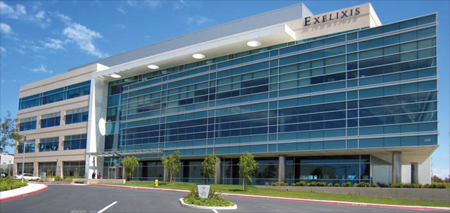Share this Page:
Results from the phase II CABOSUN trial, released this week, have shown that cabozantinib (Cabometyx) significantly improved progression-free survival (PFS) compared with sunitinib (Sutent) in advanced renal cell carcinoma (RCC) patients who had not received any previous drug treatment.
The safety profile for cabozantinib was similar to that previously reported in advanced RCC.
Cabozantinib, a multikinase inhibitor, is being developed by American company, Exelixis. Exelixis plans to present the full CABOSUN results at an upcoming medical meeting, and communicate with regulatory authorities about potentially using cabozantinib as a first-line treatment for advanced RCC.
Cabozantinib was approved by the US Food and Drug Administration (FDA) in April 2016 as a treatment for patients with advanced RCC who have received prior antiangiogenic therapy. Cabozantinib has not yet been approved for the treatment of advanced RCC in the UK.
The approval was based on findings from the phase III METEOR trial involving 658 patients. In this study, cabozantinib showed a 42% reduction in the risk of progression or death compared with everolimus (Afinitor) in patients with advanced RCC. After a minimum of 11 months of follow-up, median PFS with cabozantinib was 7.4 months compared with 3.8 months with everolimus.














